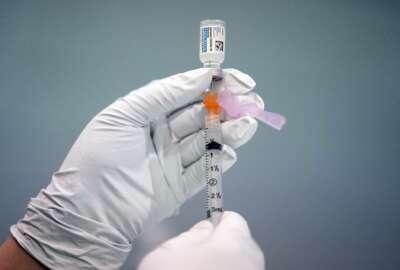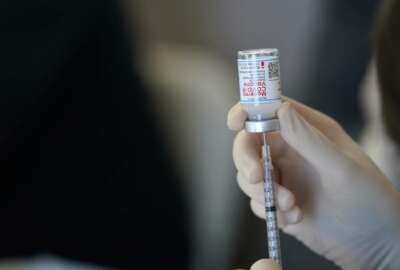What if you’re not vaccinated but immune anyway?
In the detailed planning about vaccines and returning to offices, there's a group of people everyone is overlooking.
A note from our landlord announced the impending opening of two new restaurants just steps from our lobby in Chevy Chase, Maryland. A New York chef is establishing one of them, his first in the D.C. region. I thought, the martinis will probably cost $15.
I don’t actually drink anything alcoholic during the work day. I’m betting most readers and listeners don’t either. Lunchtime drinking has largely passed out of the American work culture, and that’s largely a good thing. One less thing to worry about, and something with the potential, as an Arnold Schwarzenegger character might say, to really mess you up. Some day I’ll tell you about the steak house in Boston’s Back Bay I used to frequent early in my career, and what lunches there were like.
Intoxication at work nowadays is generally a firing offense, so there’s that. No need to reiterate the litany of potential ill-effects otherwise, except to say they often harm others besides the drunk person. For that matter, remember when smoking cigarettes, pipes and cigars in the office seemed normal?
Which brings me to the widening phenomenon of the workplace vaccine mandate, a topic I touched on last week.
The vaccine raises some of the same questions as drinking or smoking. The analogy is imperfect, since the latter two require refraining from something, rather than agreeing to actively take something into your body.
Still, to get or not to get, yes it’s a personal choice. Also true is that if you opt out and also come close to others, you could cause all sorts of bad outcomes. We all know people ranging from those who want to irradiate their cereal boxes and wear masks to bed, to those who scoff at the whole idea by making fake vaccination cards and declaring vaccines bogus.
So as the federal government and many other public sector organizations twist and turn in their chairs trying to establish policies and procedures, I want to point out one group apparently overlooked. A couple of readers wrote and alerted me to this group that’s at once obvious and invisible.
Namely, people who have contracted and recovered from COVID-19. A couple of studies show they generally don’t need a vaccine because their prior infection caused natural immunity. One reader sent me links to one study that came to this conclusion. The study, among employees of the Cleveland Clinic Health System, stated: “Individuals who have had SARS-CoV-2 infection are unlikely to benefit from COVID-19 vaccination, and vaccines can be safely prioritized to those who have not been infected before.”
Another study, published in the Lancet, covered several hundred thousand people in the U.S. It found that people who had already been infected were more likely to have side effects if they did receive a vaccination. This was a study of self-reports, but it seems to say vaccinating the already-infected isn’t a good idea.
As a vaccinee myself, I don’t understand the objections by people who have not contracted covid. Here’s another study published in the Lancet, also posted at the National Library of Medicine. It that shows the sexily-named “BNT162b2 mRNA and ChAdOx1 nCOV-19 adenoviral vector vaccines” do what they’re purported to do.
Federal agencies, operating under a thicket of laws, regulations, and sensibilities, can’t issue black-and-white policies over anything. Everything needs exceptions, special circumstances, unless otherwise indicated, “as statutes permit” clauses and the like. With a workforce of 2 million plus, that’s the way it is, and so it will be with the reentry.
People are sensitive about vaccinations. No two people have the same health profile. So as managers plan for reentry, they should keep in mind that third group of immune-but-not-vaccinated, and the procedural nuances they bring.
Nearly Useless Factoid
By Alazar Moges
The first television drama to be broadcast in the United States was “The Queen’s Messenger” on September 11, 1928. The show, made by New York radio station WGY, was a silent production that told the story of a British diplomat’s relationship with a Russian spy trying to obtain confidential papers he possessed. It featured only the two actors and was shot with three cameras.
Source: Golden Globes
Copyright © 2025 Federal News Network. All rights reserved. This website is not intended for users located within the European Economic Area.
Tom Temin is host of the Federal Drive and has been providing insight on federal technology and management issues for more than 30 years.
Follow @tteminWFED






